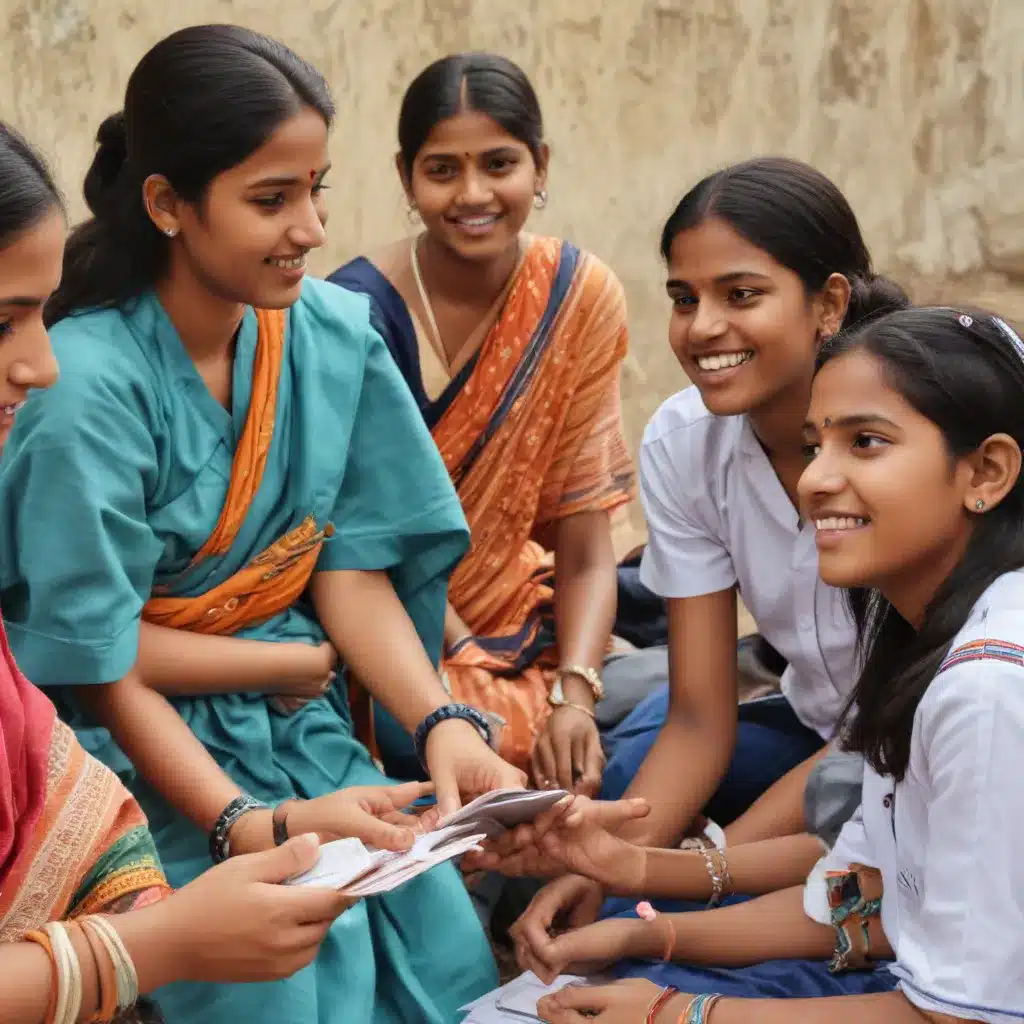
Empowering the Next Generation of Health Champions
In the ever-evolving landscape of public health, the role of peer educators (PEs) has emerged as a crucial component in India’s efforts to address the diverse needs of its adolescent population. The Rashtriya Kishor Swasthya Karyakram (RKSK), India’s National Adolescent Health Programme, has pioneered a unique approach that harnesses the power of youth-led initiatives to drive positive change.
Stanley Park High School is proud to share the remarkable story of how PEs affiliated with RKSK have stepped up to the challenge, transcending their predefined responsibilities and playing a vital role in the country’s COVID-19 response efforts.
The Untapped Potential of Peer Educators
Launched in 2014 by the Ministry of Health and Family Welfare, the RKSK program marks a significant milestone in India’s ongoing quest to promote adolescent health and well-being. At the heart of this initiative lies the community-based peer education approach, which involves the selection and training of 15-20 adolescents (aged 15-17 years) from each village.
These PEs are tasked with creating peer groups, conducting weekly village-level sessions on RKSK’s thematic areas, and referring adolescents to Adolescent Friendly Health Clinics (AFHCs) when needed. They serve as a critical link between adolescents and healthcare service providers, including Accredited Social Health Activists (ASHAs), Auxiliary Nurse Midwives (ANMs), and counselors.
However, the true extent of the PEs’ impact extends far beyond their predefined responsibilities, as evidenced by their remarkable contributions during the COVID-19 pandemic.
A recent study conducted by researchers from the Public Health Foundation of India and the University of Manitoba, Canada, delves into the extraordinary role played by PEs in the face of the unprecedented challenges posed by COVID-19.
Peer Educators: The Unsung Heroes of COVID-19 Response
The study, which involved in-depth interviews with stakeholders and focus group discussions with adolescents across two Indian states, Madhya Pradesh and Maharashtra, paints a compelling picture of the PEs’ unwavering dedication and adaptability during the pandemic.
Despite their lack of formal training in handling COVID-19 response activities, the PEs demonstrated remarkable leadership and communication skills, extending their support beyond their originally defined responsibilities within the RKSK program.
Curbing the Spread of COVID-19
One of the PEs’ crucial contributions was their role in sensitizing the community to COVID-19-appropriate behaviors (CABs), such as wearing masks, maintaining physical distancing, and practicing good hand hygiene. They achieved this through a multitude of strategies, including household visits, rallies, slogan writing, folk songs, and wall paintings.
“Saathiyas (Peer Educators) have done good work, they took out rallies, wrote slogans on walls to spread awareness in the society about the COVID-19-appropriate behaviors.” – NGO Trainer Mentor, Panna (Madhya Pradesh)
The PEs also played a pivotal role in distributing essential items like masks and sanitizers, ensuring that the community had access to these critical supplies during the pandemic.
Addressing Community and Adolescent Needs
The study found that PEs stepped up to address the unmet needs of the community during the lockdown period, when access to essential materials was limited. They facilitated the distribution of menstrual hygiene products to adolescent girls and essential grocery items to families living in containment or red zones.
“There was a rise in unemployment during COVID-19. We got a task from Gram Panchayat (a basic village-governing institute in Indian villages) to distribute masks, so we reached out to the families in our village and offered them the opportunity to use their sewing machines to make masks and sell them for monetary compensation.” – Peer Educator, Nashik (Maharashtra)
Driving the COVID-19 Vaccination Efforts
PEs played a crucial role in the COVID-19 vaccination drive, earning accolades from healthcare workers. They created awareness among adolescents and the community to overcome vaccine hesitancy through rallies, posters, wall writings, Rangoli (a popular Indian art form), and folk music.
“When the vaccination started many of our PEs helped the communities by motivating them to get vaccinated and raising awareness about COVID-19 vaccination and overcome hesitancy related to the vaccination along with our NGO Trainer Mentors. Our immunization rate was very good.” – Nodal Officer RKSK, Madhya Pradesh
In some instances, PEs aged 15-18 years, eligible for the vaccine, took the first dose to convey the message that the vaccine is safe and has no side effects.
Navigating Access to the Health System
During the pandemic, PEs continued to serve as the first point of contact for adolescents, helping them navigate the healthcare system and access the necessary services. They informed adolescents about the nearest health facilities, accompanied them to clinics, and collaborated with ASHAs, village heads, and AFHC staff to address their health concerns.
Supporting Other National Health Programs
The study also highlighted that PEs extended their support to the implementation of various national health programs and campaigns, such as the Maternal and Child Health Programme, Anaemia Mukt Bharat, pulse polio campaign, and deworming day campaign, during the COVID-19 pandemic.
Recognizing and Empowering Peer Educators
The findings of this study underscore the remarkable potential of PEs in strengthening India’s public health system, even in the face of unprecedented challenges. Despite their lack of formal training for the COVID-19 context, the PEs demonstrated tenacity, adaptability, and a deep sense of responsibility towards their communities.
To sustain and further enhance the impact of PEs, it is crucial to recognize their contributions through awards, incentives, skill-based courses, and additional support. By empowering these young health champions, we can unlock the full potential of India’s National Adolescent Health Programme and pave the way for a healthier future for our youth.
At Stanley Park High School, we are inspired by the exemplary work of PEs and the invaluable insights shared in this study. We believe that by championing the cause of adolescent health and leveraging the power of peer-led initiatives, we can create a more inclusive and resilient community that supports the well-being of our young people.

